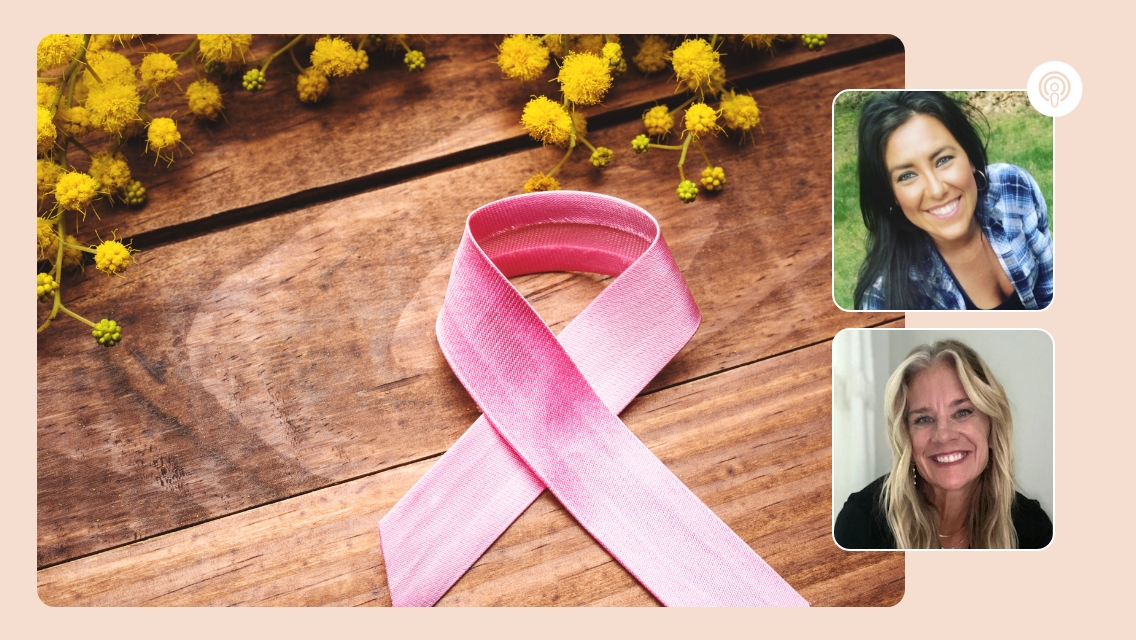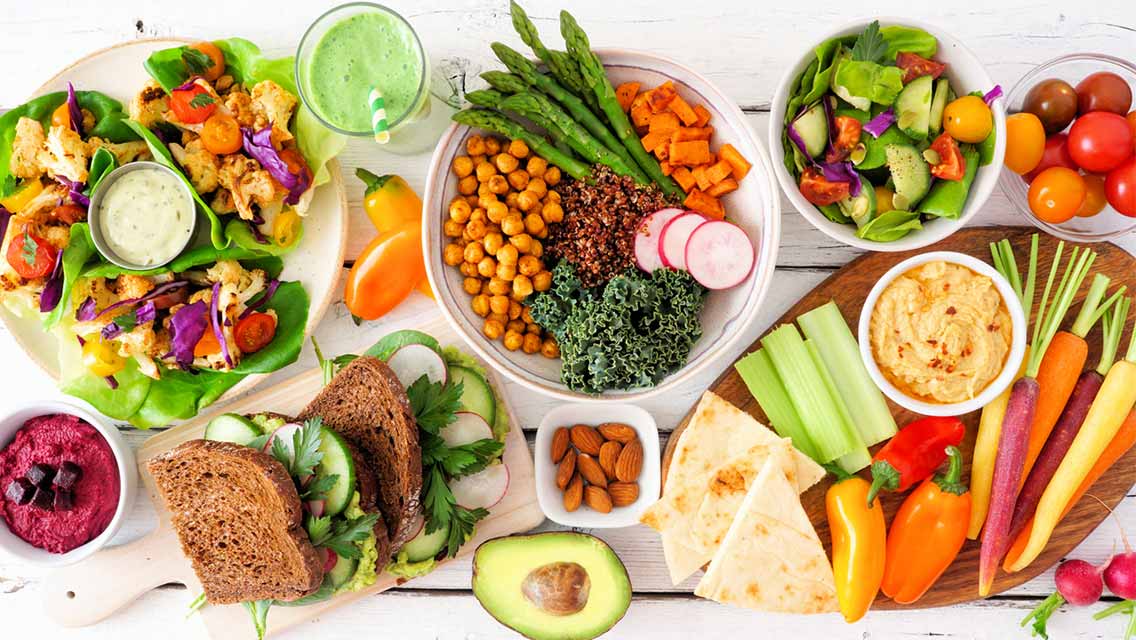Explore this article:
Years ago, as a novice gardener, I found the weeds in my yard confounding. Not only did they spring up overnight, but they spread like wildfire. No sooner would I clear a space for dahlias than the dirt would fill in with dandelions.
Eventually I noticed that weeds showed up and spread every spring no matter what, but their distribution was erratic. They preferred certain spots in my yard over others. It was the same with plants I planted: They would thrive or languish depending on where I put them.
Today, as a more experienced gardener, I get it. Of course my plants flourished in spots with better soil and more sun. It wasn’t magic making the dahlias produce blooms the size of dinner plates in my sunny backyard, nor was it a curse causing them to wither anemically in the shady front. It was the growing conditions that made the difference.
The same principle applies inside of our bodies. The health of our cells and tissues depends on the health of their surrounding cells and tissues — and, like gardeners who add nutrients to the soil and water the plants, our food and lifestyle choices can make or break the whole system.
A healthy ecosystem, unsurprisingly, can make the body resistant to diseases of all kinds, including cancer.
This is what’s known in integrative medicine as the “terrain theory” of cancer. When we think of the body as a garden we tend with our food and lifestyle choices, we can think of cancer cells as weeds — uninvited guests trying to take over.
We can also use what we know about cancer’s preferred environment to make our bodies less hospitable to its growth and spread.
Conventional cancer treatment typically focuses on targeting and eliminating cancer cells from the body — and this is critical. But it’s not all we can do, experts say.
“We know that cancer cells are not an island unto themselves,” notes cancer nutrition consultant Jeanne M. Wallace, PhD, CNC, who founded Nutritional Solutions in 1997 to help cancer patients complement their conventional treatments with food, nutrients, herbs, and a healthy lifestyle. “Tending to the internal terrain is the missing link in oncology treatment.”
The terrain approach isn’t a replacement for conventional care, Wallace adds. It’s a holistic plan that centers nutrition and lifestyle, which can make radiation and chemo more effective, minimize their side effects, and offer up a road map for life after treatment. This can be important psychologically as well as physically.
“After a conventional oncologist has done what they can to reduce the tumor burden, they may feel that their work is done,” says Nalini Chilkov, LAc, OMD, an expert in collaborative integrative cancer care. “But the patient feels like they’ve been dropped off the edge of a cliff. [They] need ongoing support for their recovery and to rebuild and sustain their health.
“Every patient deserves to have a plan for their health and not just a plan for their disease.”
Current estimates suggest that one in two men and one in three women will receive some type of cancer diagnosis during their lifetime. And a recent World Health Organization report predicts a 77 percent increase in the number of cancer cases worldwide by 2050. So cultivating a healthy inner terrain matters for all of us, with or without cancer.
All the more reason to nurture your internal ecosystem, starting today.
Building Anticancer Terrain: The Basics
You don’t need a healthcare provider to begin cultivating an anticancer terrain. While everyone will need unique support during cancer treatment, these diet and lifestyle changes can help you build a healthier terrain right now.
1) Regulate blood sugar — and not just because cancer likes sugar. Many cancers do like sugar as a source of fuel, but its unhealthy effects are far broader and more damaging.
A high-glycemic diet fans the flames of insulin resistance, says Wallace. “This can foster tumor progression in several ways — it fuels inflammation, it fuels angiogenesis.” (Angiogenesis is the formation of new blood vessels; this normally helps the body heal but also helps tumors grow.)
Wallace adds that insulin resistance may also contribute to dysregulated immune function, impaired mitochondria, imbalanced hormones, and weakened autophagy — a process of cellular cleanup.
To keep blood sugar in check, focus on eating whole foods and complex carbohydrates, and skip ultraprocessed fare and refined carbohydrates. High-quality sleep, physical activity, and stress management all help keep blood sugar regulated too.
If you’re struggling to cut back on sugar, you’re not alone — it’s a highly addictive substance. Try increasing protein and healthy fats to keep your cravings in check. (For more on how to kick the sugar habit, visit “20 Tips to Curb Sugar Cravings and Kick the Addiction.”)
2) Control inflammation. The inflammatory response protects the body from acute injury and harmful substances. As a temporary measure, this is beneficial. But when the body is exposed to unremitting challenges from a nutrient-poor diet, environmental toxins, or life stressors, inflammation can become chronic. This can contribute to a host of problems, including tumor growth.
The best way to keep chronic inflammation at bay is to eat plenty of minimally processed whole foods, nourish your gut with plenty of fiber and probiotic-rich fermented foods, and take sleep and stress management seriously. This advice can feel so commonplace as to barely warrant mention, but it’s repeated so often because it matters so much. These practices are foundational for building an internal ecosystem that’s inhospitable to cancer — and for keeping the body healthy overall. (For more on chronic inflammation, visit “How Chronic Inflammation Affects Your Health.”)
3) Keep NF-kB in mind. NF-kB is a signaling pathway inside cells that regulates the immune system’s inflammatory response. It has been called cancer’s “master switch” because it lies upstream of many of the pathways that promote cancer.
“Right now, there’s a big push to develop drugs that target cancer-promoting genes, known as ‘oncogenes.’ ‘Oh, here’s another gene that promotes cancer. Let’s block that,’” says Wallace. “I’m not a huge fan of that approach.”
Gene expression is plastic, she explains, and cancer genes are all part of a massive, interrelated web. “You hit one, and another pops up in its place — like a game of whack-a-mole.”
The more effective approach, she says, is to look upstream. For a great many of the genes involved in cancer growth, the controlling signal pathway is NF-kB. Keeping NF-kB dormant can help dial down the procancer signals in your body.
“NF-kB senses the environment, and it communicates what’s happening to the cells, which are always trying to assess the broader ecosystem,” says Wallace. “When NF-kB senses stress, infections, or other problems, it triggers a state of alarm in the cell nucleus.”
One way to calm NF-kB is with some ordinary kitchen spices or herbs, says Wallace — think basil, cinnamon, cardamom, cumin, nutmeg, rosemary, thyme, and turmeric. Use them liberally. Opting for pasture-raised, pasture-finished meat can also help regulate NF-kB, she adds. (See this list of “40 Spices and Plant-Based Foods With Anti-Cancer Potential.”)
Wallace also suggests limiting exposure to tech-related electromagnetic fields (EMFs), because they may interfere with native electromagnetic signaling. “We know that too much non-native EMF triggers NF-kB.”
To help minimize EMF exposure, carry your cellphone in your bag rather than your pocket, leave it in the kitchen when you go to bed, and consider unplugging your Wi-Fi at night. (For more on EMFs and your health, visit “What You Need to Know About EMFs.”)
4) Care for your mitochondria. The tiny factories in our cells that turn the food we eat and the oxygen we breathe into energy, mitochondria play a big role in maintaining cell health and, by extension, the entire internal ecosystem. “They control the fate of the cell, deciding if the cell will undergo apoptosis [programmed cell death] or if the cell has enough energy to heal,” explains Wallace.
Mitochondria read the environment in a way that’s similar to NF-kB, she adds. “They have sensors for sunlight. They pick up on electromagnetic fields. They sense the bonds between protons and electrons in the food that you eat in order to understand the season.”
One easy way to support mitochondria is to live in harmony with nature — especially circadian and seasonal cycles. “Get some exposure to red light from the sun, red-light devices, or incandescent full-spectrum light bulbs first thing in the morning, and don’t expose yourself to blue light from screens late in the day,” says Wallace. “Eat food in season and get some physical activity. If you’re doing these kinds of things, it leads mitochondria to signal that the fate of the cell is to be healthy.”
(For more on mitochondria and your health, visit “The Care and Feeding of Your Mitochondria.”)
5) Steer clear of toxins. Many environmental toxins are known carcinogens, so anything you can do to reduce your exposure can benefit your internal terrain. “Do you use a lot of cleaning supplies with toxins? Are you spraying pesticides on the lawn?” asks Wallace. “There are a lot of good nontoxic options.”
The same applies for cosmetics and body-care products, like lotion, deodorant, and toothpaste. Both NF-kB and mitochondria can be better regulated when harmful substances aren’t constantly in the vicinity, so start swapping in simpler, nontoxic formulations for the products you use every day. (For more on the benefits of nontoxic personal-care products, see “How the Ingredients in Personal-Care Products Can Affect Your Health” and try making your own deodorant with this simple three ingredient recipe.)
6) Sleep in complete darkness. Recent research has found that when levels of the sleep hormone melatonin are at their peak, some cancer cells revert their phenotype to healthy cells. This is a clinical way of saying some cells act as cancer cells only during the day and revert to healthier cells at night. Researchers have dubbed these “part-time” cancer cells.
Melatonin is triggered by darkness, so sleeping in a completely dark environment is critically important for producing healthy levels of the hormone. Light-blocking curtains keep ambient light from coming into the bedroom, and eliminating screens, power cords with illuminated buttons, and electric alarm clocks can also create a sanctuary of darkness.
Building Anticancer Terrain: The Specifics
As you tune in to your health, you’ll become better at discerning what your body requires — especially if you’re undergoing active cancer treatment. “Our terrain is as unique as our fingerprint,” says Wallace.
This means your needs will be different from anyone else’s. It’s why a dietary or supplement strategy that works for one person may be meaningless (or counterproductive) for someone else.
“It’s really important to personalize the work on your individual terrain,” says functional-medicine physician Elizabeth Boham, MD, MS, RD, herself a breast-cancer survivor. While most cancer patients will need to manage blood sugar, she says, “[some] will also need to focus more on rest and rejuvenation, while [others] may have to focus on their microbiome or another underlying source of inflammation.”
Though cancer development typically involves factors like inflammation and epigenetic changes, the degree to which each affects your situation can vary greatly. For one person, inflammation may be a big player, and yet “sometimes you’ll see someone with a really aggressive cancer but no inflammation,” says Wallace. Their problem might be with their mitochondria, or something else.
This is where lab testing comes in. Biomarkers can point to where your internal terrain needs extra support. Tests measuring blood sugar and inflammation are available direct to consumers, and a practitioner versed in integrative cancer care can help interpret the numbers — and offer more nuanced tests for personalized feedback. Wallace’s team uses a range of tests to identify specific vulnerabilities in a client’s terrain to address problems at their source.
Internal terrain isn’t static; it changes over time and with new treatments, so ongoing testing is important. “If we have a client and they are on two specific drugs and a month later the oncologist switches them to two different drugs, [our integrative plan] will be something completely different than it was before the switch,” says Wallace.
She recommends bloodwork during treatment and modifies the integrative-care plan accordingly.
Once treatment is complete, getting routine bloodwork can be valuable both physically and psychologically. It allows you to track your internal terrain and make sure your numbers are staying in the desired range — which is a comfort.
Such interventions can help you give your terrain what it needs most this season. And staying attuned to its changing needs gives your garden its best chance to produce award-winning blooms for years to come.
If You Get a Cancer Diagnosis …
When you or someone you love is diagnosed with cancer, you may feel like the world just tilted on its axis. It is normal to feel this way, says integrative cancer-care expert Nalini Chilkov, LAc, OMD — cancer is a serious and scary prospect. Yet no matter how dire the report, you do have time to catch your breath and get your questions answered so that you can make informed decisions.
Integrative cancer experts offer this advice to help you prepare for the journey.
1) Take time to make a plan.
A cancer diagnosis is completely unsettling, and your first impulse may be to act quickly. That’s a good instinct — but acting quickly is different from acting immediately.
“When people are first diagnosed, the oncologist often says, ‘OK, we’ll start chemo next week, then we’ll do surgery, then more chemo, then some radiation, then we’ll do hormonal therapy,’” says Chilkov. “And the patient’s supposed to be ready for all that next week.” That’s a lot for many of us.
And while some cancers are aggressive, most develop slowly over time; they don’t appear in the body overnight. In these cases, treatment doesn’t have to start overnight either.
“Cancer is not an emergency — [your] hair isn’t on fire,” she notes. “There’s time to get a second or third opinion, to organize what needs to be organized, to get childcare covered, to be well prepared for the challenging treatments ahead.”
Taking a little extra time is also good for your mental health. “People can integrate what has just happened to them and get ready to do something difficult,” she adds.2
2) Get multiple opinions.
Finding the right care team is important. “A second and third opinion is always helpful,” says functional-medicine physician Elizabeth Boham, MD, MS, RD. This can be especially valuable if you live in an area without a reputable cancer-treatment center.
Even if you have good local resources, there’s value in getting additional perspectives. Oncology is practiced differently at different hospitals across the United States and in other parts of the world. And the best specialist for your specific diagnosis may be located elsewhere.
“You may not end up getting treatment [at a different cancer center], but they may introduce you to new options or reinforce what your local oncologist is recommending,” adds Boham.
And now there’s telemedicine. Many cancer experts, including integrative practitioners, are available for virtual consultations, so you need travel no farther than your laptop.
3) Think “both/and.”
Integrative cancer care can be powerfully supportive, but even its practitioners don’t view it as a replacement for chemotherapy, radiation, or immunotherapy. “Most natural therapies don’t actually reduce tumor burden, and that’s the first job in any treatment protocol,” says Chilkov.
The best way to think about an integrative approach to cancer may be as a complement to tumor-reduction protocols. Cancer nutrition consultant Jeanne Wallace, PhD, CNC, describes her work this way: “It’s about how we can assess the terrain and match you up with the self-care strategies that are best for you.”
What’s the Best Anti-Cancer Diet?
There’s a lot of debate about the “right” diet for cancer. Experts champion different diets: ketogenic, ancestral, paleo. Others say vegan is the only way to go. Or maybe a Mediterranean diet, the fasting-mimicking diet, or intermittent fasting. It can be dizzying to dive into the world of nutritional oncology.
So, what’s the best anticancer diet for you? It depends. There is no one right way to eat when you have cancer, says functional-medicine physician Patrick Hanaway, MD. The best approach will be tailored to your diagnosis and internal terrain.
“Some cancers, like glioblastoma multiforme, are particularly insulin sensitive,” he says. “So, if we have someone with one of those cancers, then they may benefit greatly from a ketogenic approach,” which keeps insulin production low.
Depending on the cancer, this approach can even make treatments more potent, says Hanaway. Other insulin-sensitive cancers include breast, colorectal, pancreatic, and radiation-sensitive cancers, such as head and neck and anorectal.
Then there are the types with no apparent relationship to insulin sensitivity. “We can’t make a global statement,” he continues. “We can’t say all cancers are stimulated by sugar and all cancers should be treated with a ketogenic diet.”
If your terrain biomarkers suggest epigenetic changes are in play, “a plant-based diet might work well,” says cancer nutrition consultant Jeanne Wallace, PhD, CNC. Conversely, if blood tests indicate you have a problem with angiogenesis, a plant-based diet may not be the right choice for you. It can lower zinc and increase copper, and copper can fuel the angiogenesis that supports tumor growth.
A functional or integrative practitioner with expertise in nutritional oncology can help you understand your cancer biomarkers and develop the best approach.
What About High-Dose Vitamin C for Cancer?
Vitamin C infusions are now a fairly popular adjunctive cancer treatment. In very high doses, vitamin C puts oxidative stress on cancer cells, making them more susceptible to conventional treatments like radiation and chemotherapy.
“It can be a really supportive treatment,” says functional-medicine physician Elizabeth Boham, MD, MS, RD. “But talk to your oncologist first.” As with diet, much depends on your particular cancer and internal terrain.
“If your terrain isn’t doing well, vitamin C infusions are a waste of time, energy, and money,” says functional-medicine physician Patrick Hanaway, MD. “The first thing you want to do is focus on the lifestyle aspects that improve internal terrain — nutrition, sleep, physical activity, stress management, and finding meaning and purpose in your life.”
If you do opt to pursue treatment, it matters where you receive it, adds Boham. “A lot of the IV centers where people go to fix their hangover can’t mix that amount of vitamin C.”
Illustrations by: Sandra Dionisi





